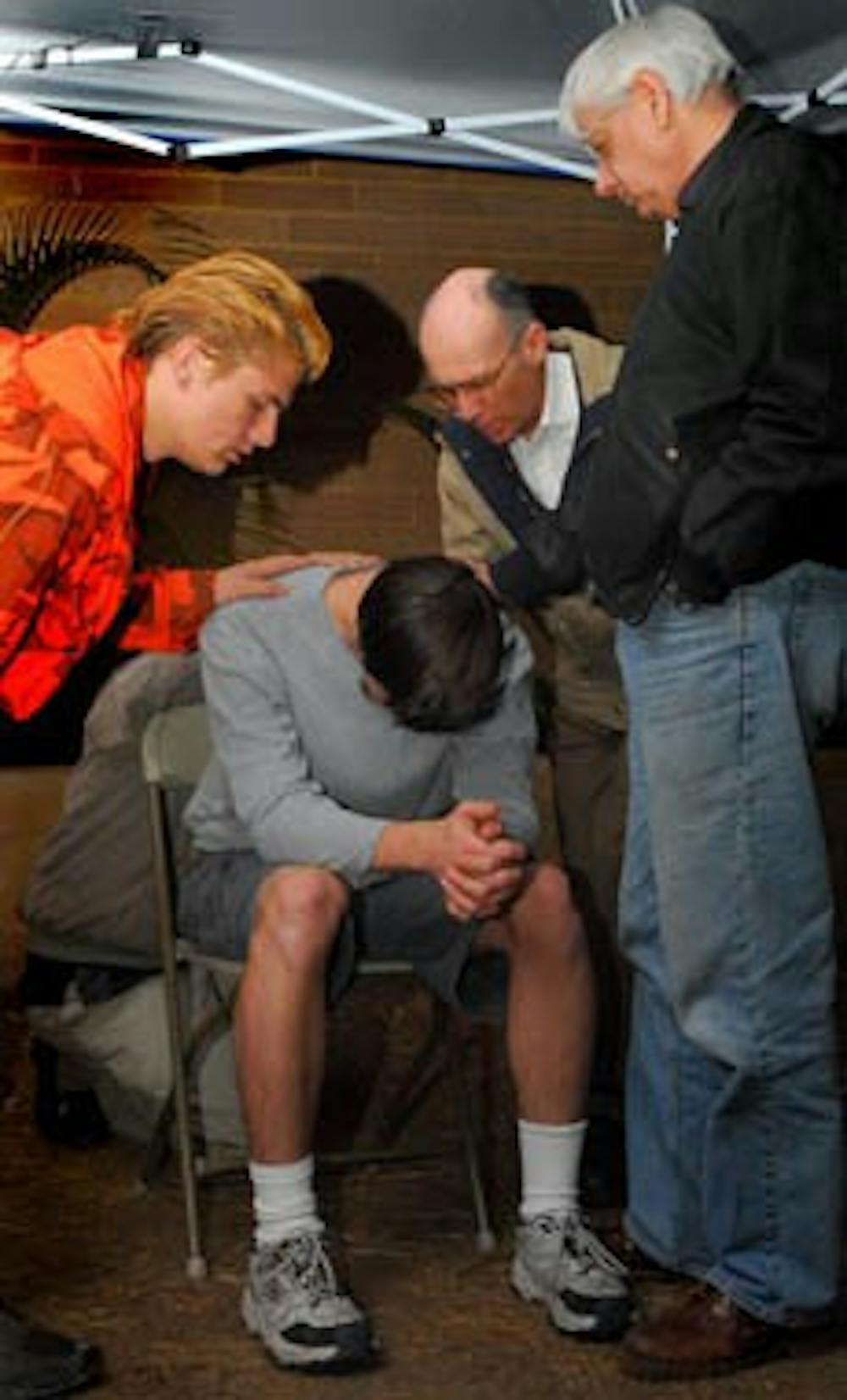The power of prayer can be beneficial to people with psychological or mental problems, a recent study suggests.
Assistant professor David Hodge's research, "A Systematic Review of the Empirical Literature on Intercessory Prayer," is a meta-analysis of 17 studies that question the connection between healing and God or some other magnificent being.
"This research is very controversial," said Hodge, an assistant professor of social work at the West campus who specializes in religion and spirituality. "One study might show positive results; one study might show no results.
"Overall, they show that there is some added benefit that comes from intercessory prayer or prayer done for the benefit of another person," he added
The studies Hodge reviewed used randomized double-blind methodology, so there were no placebo effects.
Although some positive results were seen, Hodge said that the strength of intercessory prayer is not as effective as cognitive behavior therapy. CBT is the sort of therapy that deals with the role of thinking in the way a person feels and acts.
"People suffering from an illness like depression should seek medical attention," Hodge said. "Prayer can be used as an intervention in the healing process, but it can't replace CBT."
Adam Cohen, assistant professor of psychology in the College of Liberal Arts and Sciences, said studies show that people are typically healthier when they use positive coping methods such as prayer, rather that using negative outlets. But seeking a connection to religion in this controversial research may be theologically inappropriate.
"If God has a plan for everyone, can you make God arbitrarily change his mind by praying for the health or life of a sick person?" Cohen said. "Religion says you're not supposed to test God."
Cohen did a fellowship at the Center for the Study of Religion/Spirituality and Health at Duke University Medical Center.
"Prayer is not any less meaningful, but then is God supposed to be some type of 'cosmic butler' when we ask him to do something?" he asked.
For criminal justice senior David Vu, an intern at the All Saints Catholic Newman Center, it is an issue of mind over matter.
"If you believe you can be spiritually healed, you feel more comfortable, more guided, more at ease," said Vu, who has been attending religious retreats his whole life. "Then, it is beneficial to your health."
Rev. James Thompson, associate director for the All Saints Catholic Newman Center, said he doesn't think prayer can control things in life, but that it's common sense that someone with a healthy religious life will be physically healthier as well.
"Essentially, prayer makes us more receptive and opens us up to whatever God's providence or will is," Thompson said. "Praying is an aspect of life that creates a full person."
Reach the reporter at: megan.bonneville@asu.edu.




